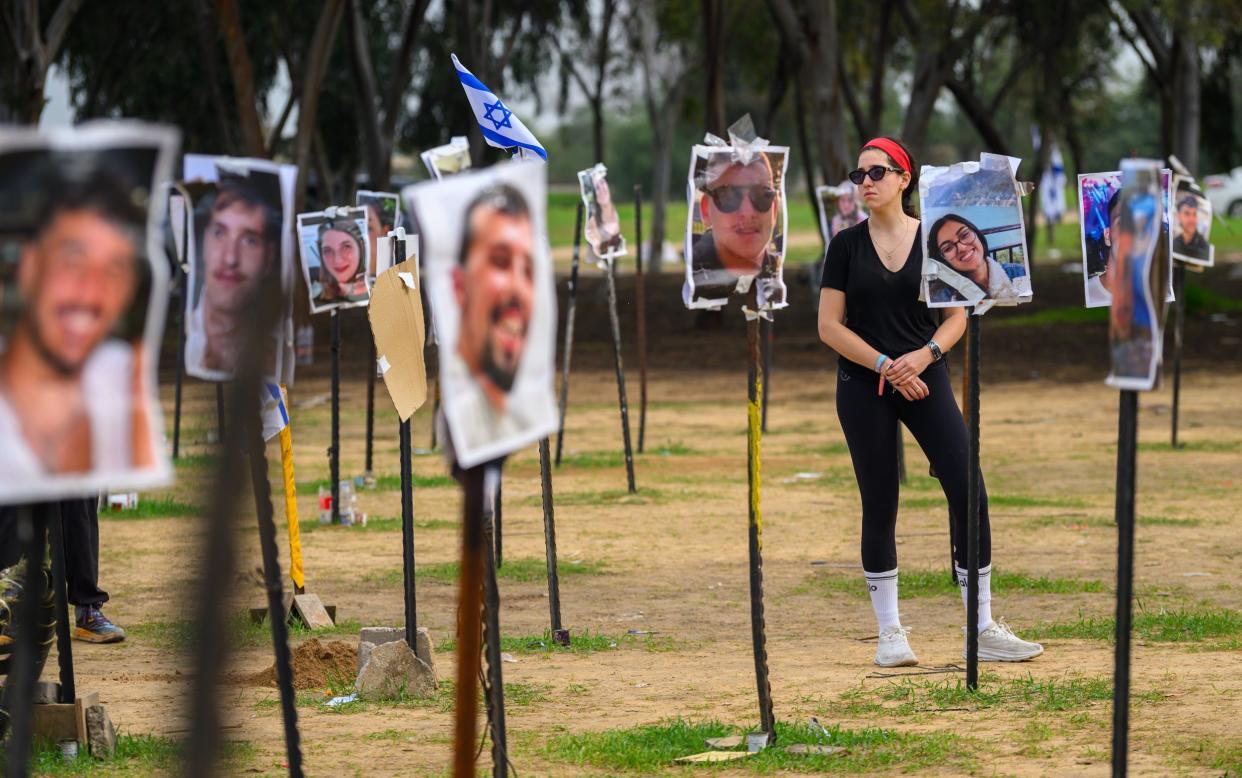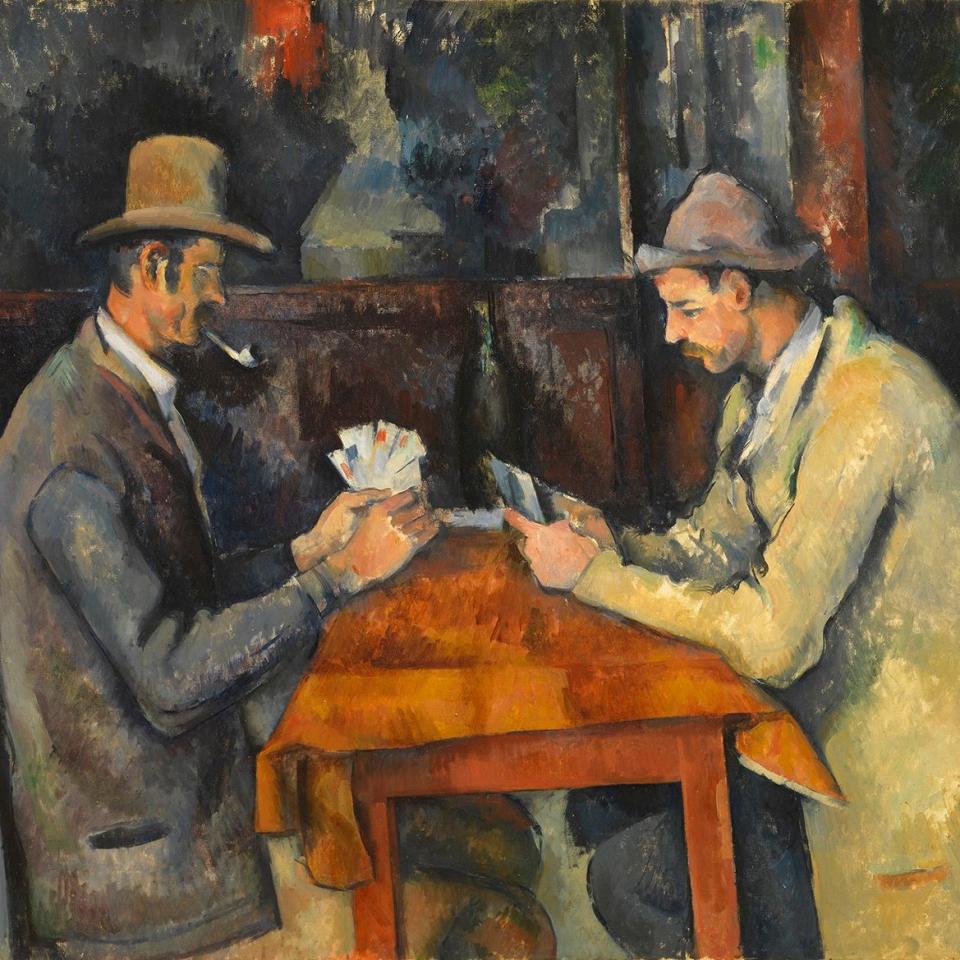Letters: Hamas’s murderous aims mean a two-state solution is wishful thinking

- Oops!Something went wrong.Please try again later.
SIR – Hamas’s murderous attack on October 7 was part of its wider, stated goal of wiping Israel off the map.
Of course, it is essential to bring the current conflict to a just conclusion, and to commence serious discussions on the formation of a Palestinian state. Yvette Cooper, the shadow home secretary, correctly points out that “statehood of a people is not in the gift of its neighbour; it is the right of a people, and it is the right of the Palestinian people”.
I hope she would agree that the same logic applies to the right of the Israelis to live peacefully in their own country. Israel has defended itself from attacks by its neighbours ever since it was formed. It might be more willing to consider a two-state solution (report, January 22) if Arab nations accepted unreservedly its right to exist without constant threat.
Derek Godfrey
Holt, Norfolk
SIR – Those who advocate a two-state solution are oblivious to the dangers that it would bring.
The Israeli public has had to endure years of attacks from Hamas, while the Palestinian Authority pays the families of people who perpetrate acts of violence.
I find it extraordinary that Israel should be asked to tolerate those who will not recognise its existence, and have refused its offers of peace.
David Freeman
New Barnet, Hertfordshire
SIR – The acts of Hamas on October 7 are to be condemned, but Israel’s response cannot be considered proportionate.
It would appear the Israeli government does not understand that the continued bombing of Gaza will only harden Hamas’s resolve and nurture a new generation of terrorists.
Derek Scott
Fernhurst, West Sussex
SIR – The claim that Israel is not allowing food and medical supplies to enter Gaza is disingenuous. Each delivery has to be checked at the border to ensure that only humanitarian items are included – thanks to Hamas’s practice of smuggling in arms, and then hiding them under hospitals, schools and apartment buildings.
Angela Klemer
Westcliff-on-Sea, Essex
SIR – South Africa is close to becoming a failed state. Successive governments have proved incompetent and corrupt.
Despite this, it has the temerity to accuse Israel – the only true democracy in the Middle East – of genocide for defending itself against the murderous Hamas terrorists (report, January 21).
Only the United Nations would entertain such ridiculous allegations. South Africa should try fixing its own problems before criticising others.
Mick Richards
Worcester
GP cancer checks
SIR – My sympathies go to the Duchess of York after she was diagnosed with skin cancer (report, January 22).
Reading further, I see that the NHS advises “anyone with changes in the appearance of a mole, or even a new mole should contact their GP”.
Could the NHS explain how one can do this? It is virtually an impossibility.
Sarah Gough
Sevenoaks, Kent
SIR – In diagnosing prostate cancer, some medics are skeptical about the value of determining the amount of PSA (prostate-specific antigen) in a patient’s blood as an indicator (Letters, January 20).
However, it’s not the actual value so much as a perceived rise in PSA in consecutive assessments. One major problem is there is no national standard for the method used in making this evaluation. These are tiny amounts – thousand-millionths of a gram in one millilitre – and there are a number of methods used depending on the laboratory.
Thus the value determined by one laboratory using one method can be significantly different from that made by another laboratory from samples taken on consecutive days, giving a false indication of a rapid rise in PSA – as happened to me.
Those monitoring PSA, particularly knowing where it is likely to be hereditary, should stick to the same lab where possible.
Vic Pheasant
Waterlooville, Hampshire
Masked protesters
SIR – I led the investigation into the poll tax riots in London in 1990, during which scores of Metropolitan Police officers were injured, some seriously.
A major obstacle in bringing violent offenders to justice was the widespread use of facemasks, which undoubtedly emboldened many and transformed a legitimate protest into a violent, bloody riot. In the aftermath of the investigation, we strongly recommended a change in the law to ban masks (report, January 22). Nothing happened.
Since then masks, bandanas and balaclavas have become de rigueur for political protesters and common criminals, delegitimising any cause.
The right to peaceful protest is fundamental to a democracy – but so is accountability. Masks have no place in peaceful protest.
Roy Ramm
Dunmow, Essex
Nuclear tube travel
SIR – It is not only in shops and offices where pneumatic transfer systems have been used (Letters, January 22).
One was in operation at the Dounreay nuclear site – used for transferring radioactive samples from the fast reactor fuel reprocessing plant to shielded cells in the analytical labs. The high speed of travel meant that there was no need for shielding of the transfer tubes.
The arrangement was much more efficient than using massive shielded containers to move samples around the building.
Roger Jackson
Stockport, Cheshire
Giving fangs
SIR – When a much-loved Dutch auntie passed away, my cousins asked me what I would like from her estate (Letters, January 22).
I requested something personal, which would remind me of her. They sent me two pairs of false teeth.
Patricia Banton
Burton on Trent, Staffordshire
BBC groupthink
SIR – I recently wrote to the BBC to express concern over its lack of candour in describing the Israeli-Palestinian conflict (“BBC faces tougher scrutiny over bias”, report, January 22).
The response was interesting. My complaint had been based on my memory of what I had seen and heard, and my instant reaction to it. The BBC’s response was a second-by-second review of its recording of the broadcast.
It used this minute detail to attempt to explain that the impression of lack of impartiality was of my own making. It did this by listing the sequence of events in its broadcast which, it insisted, when added together, provided equal coverage of both sides of the story.
The diligence with which the BBC marked its own homework was impressive, but the obvious desire to justify its position was symptomatic of the groupthink that needs to be dealt with urgently.
Dr Michael A Fopp
Soulbury, Buckinghamshire
SIR – The measures proposed to improve the impartiality of the BBC’s output (report, January 22) can only ever be a sticking plaster as long as the majority of the producers, presenters, managers and staff, and those who commission programmes, remain out of step with the majority opinion in the country.
A restructuring of the BBC to highlight and separate specification from delivery, with much tighter accountability of the former, is the only answer.
Alan Hetherington
Stillington, North Yorkshire
Drink like a Venetian
SIR – Your correspondents’ debate on the relative merits of red vermouths (Letters, January 22) will end the moment that they start mixing their negronis using Carpano (antica formula).
It’s good enough for Harry’s Bar in Venice and it’s certainly good enough for me.
Bernard Kerrison
Boca Grande, Florida, United States
SIR – I am clearly missing out on a lot, given my lack of knowledge of the varying qualities of different types of vermouth.
However, I can confirm that my daily glass of 50 per cent orange juice and 50 per cent lemonade with my dinner is always enjoyable.
Owen Hay
Colchester, Essex
How to counter confusion when dealing cards

SIR – Last week I went to Sherborne for a bridge charity event. I hadn’t met the north-south players at my table before. While dealing, one of them paused and said: “Oh dear, I don’t know where I’ve got to.”
This can happen, so I told her to deal from the bottom of the pack, starting with herself and in an anticlockwise direction, to rectify the problem. She and her partner had never heard of this trick – and it worked.
Perhaps this will be of use to readers who have found themselves in a similar position.
Helen Cann
Poundbury, Dorset
Fork out for fences that can withstand storms
SIR – Storm Isha has caused a lot of damage (report, January 22), particularly to fence panels. The cheap overlap-style panels sold by most DIY outlets are frankly useless. Storms make matchsticks of them in seconds.
Closeboard panels slotted into concrete posts with concrete gravel boards are the answer. They may cost more but they are much stronger, are able to withstand most storms and will save you money in the end.
Stan Kirby
East Malling, Kent
SIR – Sunday’s gale was a four-chair wind. Gusts can blow one patio chair down the garden, and for a couple to go is not unknown. Only twice in our 10 years here have three chairs taken flight. So Isha has set a record.
Roger Fowle
Chipping Campden, Gloucestershire
SIR – I, too, remember the winter of 1963 (Letters, January 20). My brother and I purchased surplus Second World War Army boots and screwed ice-skate runners to the leather soles.
The Eyebrook reservoir in Rutland froze over. The son of the headmaster at Uppingham, where my father was a master, had an ancient, three-wheel, electric invalid carriage, and he towed many willing young skaters over the frozen ice – without any concern from parents. This was before the time of the health and safety brigade.
Geoff Pringle
Long Sutton, Somerset
SIR – My family visited relatives in Chippenham for Christmas in 1962. We were snowed in – unable to go home.
As members of the local angling club, my cousins and I fished most days, and to keep warm we rolled a giant snowball between bouts of fishing. On my next visit in March, it was still there, albeit greatly reduced.
Alan Belk
Leatherhead, Surrey
Letters to the Editor
We accept letters by email and post. Please include name, address, work and home telephone numbers.
ADDRESS: 111 Buckingham Palace Road, London, SW1W 0DT
EMAIL: dtletters@telegraph.co.uk
FOLLOW: Telegraph Letters on Twitter @LettersDesk
NEWSLETTER: sign up to receive Letters to the Editor here

